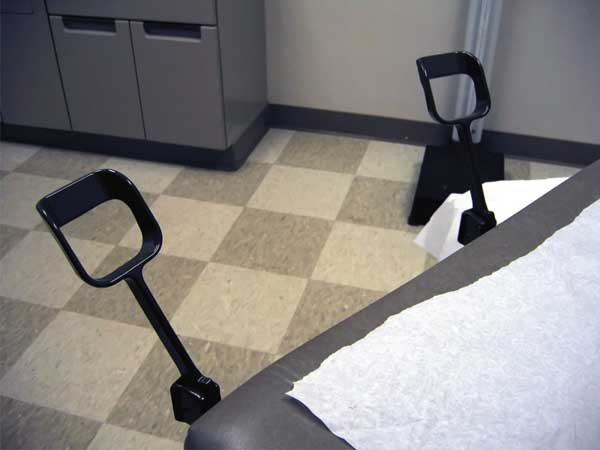Stressing the Importance of Cervical Health Awareness
Is Pain with Penetration Preventing you from getting a Pap test?
January is a great time to make resolutions, fresh starts, and to start committing to self-care! It is also Cervical Health Awareness Month. Today we chat about the Pap test. If you are an adult with female anatomy living in the United States, chances are you have heard the term “Pap test” or “Pap smear.” But why they are important and what can you do if you can’t tolerate a gynecological exam with a speculum?
I can’t stand having a speculum placed in my vagina. What can I do?
Pelvic floor issues such as vaginismus, vulvodynia, and vulvar vestibulitis can make it hard to have anything inserted into the vagina. Be it a penis, tampon, or a speculum, commonly reported symptoms include intense burning and stinging, sharp pain, a feeling that you “will tear,” or like you are “hitting a wall.” These are all conditions that are treatable at Femina Physical Therapy. Our therapy along with your healthcare team can help restore your ability to take care of your reproductive health as well as your sexual health and pleasure.
First off, what is the cervix and why do we have to test it?
The cervix is the lower portion of the uterus. It is about two inches long, and tube shaped. It widens to allow babies to be born and allows the passage of things like menstrual blood and semen in and out of the uterus. It is made of two different types of cells that are vulnerable to changes that can make them pre-cancerous or cancerous, with the potential to develop into cervical cancer. The Pap test helps detect these changes early on.
What is a Pap test?
The Pap test detects if there are cells on the cervix that are not normal so that your healthcare team can monitor and prevent the development of cervical cancer.
When someone has a Pap test, they are positioned on an exam table and a device called a speculum is gently inserted to open the vagina. The speculum allows the healthcare provider to view the cervix and upper vagina. Once the provider can see the cervix, a medical brush or spatula is used to “sweep” across the mouth of the cervix and inside the tubular portion, collecting microscopic cells. These cells are then sent to a lab where they are prepped and evaluated under a microscope.
What is an Abnormal Pap?
If the lab determines that the cervical cells collected with the Pap test are abnormal or precancerous, the test results will often be called an “abnormal pap.” I want to underscore that having an abnormal pap does not mean you will get cervical cancer!
There are, of course, lots of medical names your healthcare provider may use to describe an abnormal pap, including:
- Cervical dysplasia
- Abnormal cell changes
- Precancerous cells changes
- CIN (cervical intraepithelial neoplasia)
- SIL (squamous intraepithelial lesions)
- “Warts” on the cervix
All of these terms mean similar things—simply that some abnormalities were found. Most of the time, these cell changes are due to HPV, or the human papillomavirus. Again, having an abnormal pap does not mean you will get cervical cancer!
An abnormal pap is simply a flag for your healthcare provider – and you- to schedule screenings to see if the cells continue to change. If cells do keep changing your healthcare provider may decide to do treatment that prevents further cell changes that could become cancerous over time if left unchecked.
Who should get a Pap test?
According to the US Office of Women’s health, most women ages 21 to 65 should get Pap tests as part of routine health care. Even if you are not currently sexually active, you should still have a Pap test.
How often should I get a Pap test?
Most women can follow these guidelines:
- If you are between ages 21 and 29, you should get a Pap test every 3 years.
- If you are between ages 30 and 64, you should get a Pap test and human papillomavirus (HPV) test together every 5 years or a Pap test alone every 3 years.
- If you are 65 or older, ask your doctor if you can stop having Pap tests.
Some women may need more frequent Pap tests. You should talk to your doctor about getting a Pap test more often if:
- You have a weakened immune system because of organ transplant, chemotherapy, or steroid use.
- Your mother was exposed to diethylstilbestrol (DES) while pregnant.
- You have had treatment for abnormal Pap results or cervical cancer in the past.
- You are HIV-positive.
Are you worried about paying for a Pap test?
The CDC’s National Breast and Cervical Cancer Early Detection Program (NBCCEDP) provides breast and cervical cancer screenings and diagnostic services to low-income, uninsured, and underinsured women across the United States.
Now that you know more about cervical health awareness, perhaps it’s time to schedule an appointment with one of our therapists!
Resources:
American College of Obstetricians and Gynecologists
National Cervical Cancer Coalition’s 10 Things you should know about HPV and cervical cancer

